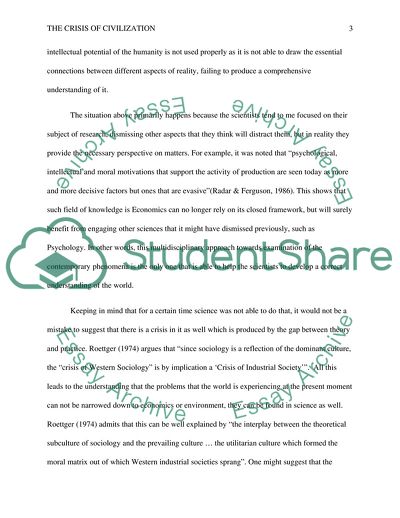Cite this document
(The Crisis of Civilization Literature review Example | Topics and Well Written Essays - 1750 words, n.d.)
The Crisis of Civilization Literature review Example | Topics and Well Written Essays - 1750 words. https://studentshare.org/sociology/1874151-the-crisis-of-civilization
The Crisis of Civilization Literature review Example | Topics and Well Written Essays - 1750 words. https://studentshare.org/sociology/1874151-the-crisis-of-civilization
(The Crisis of Civilization Literature Review Example | Topics and Well Written Essays - 1750 Words)
The Crisis of Civilization Literature Review Example | Topics and Well Written Essays - 1750 Words. https://studentshare.org/sociology/1874151-the-crisis-of-civilization.
The Crisis of Civilization Literature Review Example | Topics and Well Written Essays - 1750 Words. https://studentshare.org/sociology/1874151-the-crisis-of-civilization.
“The Crisis of Civilization Literature Review Example | Topics and Well Written Essays - 1750 Words”. https://studentshare.org/sociology/1874151-the-crisis-of-civilization.


